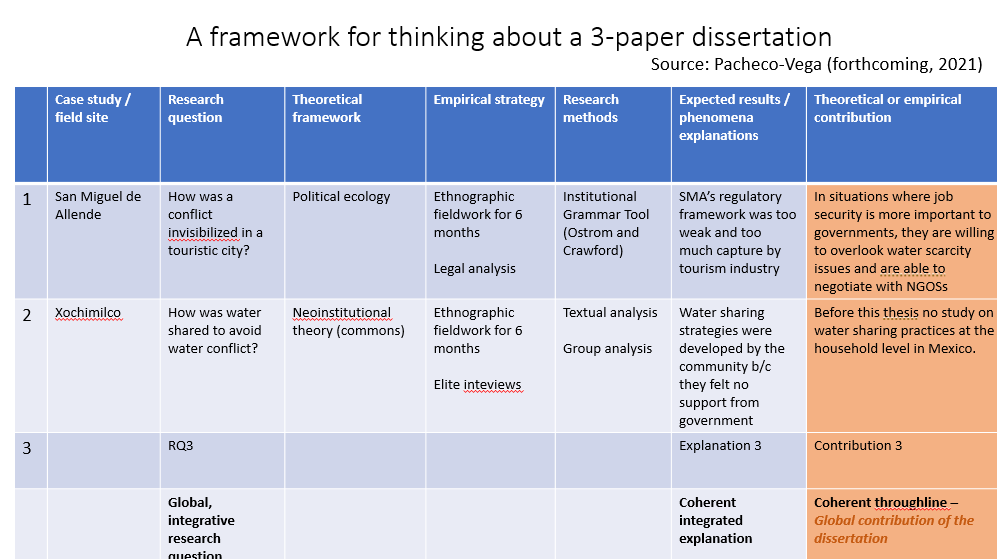
At the #HowToJPART webinar, hosted by @mkfeeneyWYO and @JPART1991 
https://twitter.com/JPART1991/status/1384176303222317059

This #HowToJPART webinar sounds like it's going to be incredible, what a lineup of powerhouses! :D
The seminar is recorded and will be made available on Twitter, share with the list-serv, and everyone who registered.
The webinar will cover new authors' experience w/JPART.
The seminar is recorded and will be made available on Twitter, share with the list-serv, and everyone who registered.
The webinar will cover new authors' experience w/JPART.

First off, @DrEEBeaton #HowToJPART shares her views on how she and her coauthors decided on submitting to JPART.
I am SO excited to hear about what a High-Risk R&R means at JPART (I've had one like that at another journal meaning - "your revision may or may not make it"

I am SO excited to hear about what a High-Risk R&R means at JPART (I've had one like that at another journal meaning - "your revision may or may not make it"


The issue that @KJureeCapers mentions (being a political scientist working in public administration) as a motivation for submitting for JPART resonates with my own experience (same, PS in PA) #HowToJPART
Professor Capers considered submitting to @JPART1991 would help her case
Professor Capers considered submitting to @JPART1991 would help her case

Delighted to hear Dr. Jose Nederhand (Twitter-less) on how she succeeded in submitting and getting a solo-authored paper using fsQCA paper accepted to @JPART1991 #HowToJPART 

What a wonderful way to showcase to our students and fellow scholars how we respond to reviewer comments. Note that the new table that Dr. Nederhand shows the reviewer comment, her reaction and response, and the new table she created in response #HowToJPART @JPART1991 

Great suggestions by @KJureeCapers on how to tactfully educate reviewers on qualitative research standards on sample sizes, sampling methods, validity and standards etc.
I had in the past criticized JPART for not having enough qualitative work published, I see number has grown.
I had in the past criticized JPART for not having enough qualitative work published, I see number has grown.

Apologies to @JPART1991 and #HowToJPART panelists, but I DO have a few blog posts on the revise-and-resubmit process.
- My Drafts Review Matrix raulpacheco.org/2018/02/an-imp…
- My backcasting process for R&Rs
raulpacheco.org/2019/03/backca…
- My Drafts Review Matrix raulpacheco.org/2018/02/an-imp…
- My backcasting process for R&Rs
raulpacheco.org/2019/03/backca…
- My "how to write responses to reviewers"
raulpacheco.org/2020/08/writin…
and
- My "how to tackle an R&R, the full process" post
raulpacheco.org/2021/02/tackli…
#HowToJPART @JPART1991
(processes described by panelists are very similar to the ones I propose, which makes me super happy)
raulpacheco.org/2020/08/writin…
and
- My "how to tackle an R&R, the full process" post
raulpacheco.org/2021/02/tackli…
#HowToJPART @JPART1991
(processes described by panelists are very similar to the ones I propose, which makes me super happy)
We are now moving into the Q&A section of #HowToJPART @JPART1991
Grateful to @mkfeeneyWYO and the JPART team for hosting this webinar and to all panelists, and to all live-tweeters :) <3
Grateful to @mkfeeneyWYO and the JPART team for hosting this webinar and to all panelists, and to all live-tweeters :) <3

I think it was @elpepesanchez who asked @mkfeeneyWYO about what a High Risk R&R is. I am excited to hear her response.
- Reviewers are split.
- Reviewer negative may have more expertise on the topic.
- Concerns may be really fundamental #HowToJPART
- Reviewers are split.
- Reviewer negative may have more expertise on the topic.
- Concerns may be really fundamental #HowToJPART
I am also excited to hear on working with old data. #HowToJPART
"Our primary goal is to publish rigorous research that advances public administration theory and theoretical work doesn't always age so rapidly." - @mkfeeneyWYO
Authors have 6 months to get the revision done.
"Our primary goal is to publish rigorous research that advances public administration theory and theoretical work doesn't always age so rapidly." - @mkfeeneyWYO
Authors have 6 months to get the revision done.
"Small-N studies ARE of interest to @JPART1991 as long as the research design is fit for the research question and the theory development" - Mary Feeney.
"All papers published in JPART should be advancing theory development in public administration" - @mkfeeneyWYO #HowToJPART
"All papers published in JPART should be advancing theory development in public administration" - @mkfeeneyWYO #HowToJPART
Thanks also to Jared Olsen for all his work with the @JPART1991 editorial work and support he provides to Mary Feeney. And the logistics behind this wonderful #HowToJPART. 

I had a blast, thanks everyone! Off to give a talk of my own. Not surprisingly, on THE ETHICS OF ETHNOGRAPHY.
• • •
Missing some Tweet in this thread? You can try to
force a refresh







